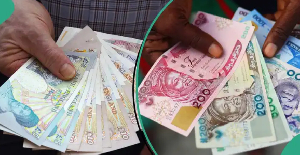The Arewa Economic Forum has appealed to the Central Bank of Nigeria’s (CBN) to moderate the new capital requirements for Bureau De Change (BDC) as operators risk shutting their businesses out of the market.
At a press briefing in Abuja on Thursday, the Forum’s Chairman, Dr Ibrahim Dandakata, said the policy risks deepening economic and regional inequality at a time when the North is already grappling with terrorism, banditry, and high youth unemployment.
He called on President Bola Tinubu to intervene and urged the CBN to extend the implementation timeline by six to twelve months to allow operators to mobilise capital and carry out sensitisation.
Under the revised guidelines issued by the apex bank, Tier 1 BDCs operating nationwide must now have a minimum capital base of N2 billion, while Tier 2 operators limited to a single state require at least N500 million. This represents a rise from the previous N35 million capital requirement introduced in 2019, amounting to an increase of between 1,300 per cent and 5,600 per cent.
Dandakata said this sharp increase would likely force many BDCs in Kano’s Wapa market, Zone 4 in Abuja, Sokoto, Minna, Benin, and parts of Lagos to shut down. He noted that over 90 per cent of BDCs capable of meeting the new threshold are based in the South, particularly Lagos, risking further concentration of economic activity.
The new framework also bars banks, NGOs, foreigners, and public officials from owning BDCs, while introducing stricter scrutiny on funding sources. Dandakata argued this could push out genuine operators and weaken regional economic participation.
Drawing comparisons with countries such as South Africa, Ghana, Kenya, Egypt, and India, he noted that licensing requirements abroad remain far more affordable and accessible, unlike Nigeria’s restrictive approach which could deepen financial exclusion.
“This policy, if left unaddressed, will wipe out the entire northern participation in the BDC space. It is not just an economic issue. It is a national security threat. You cannot displace thousands of youth from their means of livelihood in a region already battling terrorism, banditry, and high unemployment without expecting serious consequences,” he warned.
To help smaller businesses stay afloat, the Forum proposed forming Northern-led BDC consortia and regional investment vehicles. Dandakata also urged a phased and inclusive approach that considers regional differences in capital access, as well as more transparency in ongoing talks by the Association of Bureau De Change Operators of Nigeria to ensure grassroots operators are not sidelined.
He further called for balanced representation in financial regulatory appointments to address feelings of marginalisation in the North.
Also speaking at the briefing, President of Northern BDC Operators, Abdulwahab Yusuf, described the recapitalisation directive as “practical punishment,” questioning how small operators were expected to raise capital moving from N35 million to N2 billion or even N500 million.
“Any money you even bring in, they have to vet it, find out how you got it. You have to give the history of the money. So, it became so difficult for BDCs to meet all these requirements,” Yusuf said.
He noted that unlike banks, which can raise funds through the capital market, BDCs lack such channels. “N500 million is not a joke. We have been asking them to extend this time or otherwise give us an open door where we can access funds,” he added.
The Forum closed by urging the CBN to adopt a more balanced policy that protects market stability while safeguarding livelihoods and supporting inclusive economic growth nationwide.
Business News of Friday, 11 July 2025
Source: www.thenationonlineng.net













